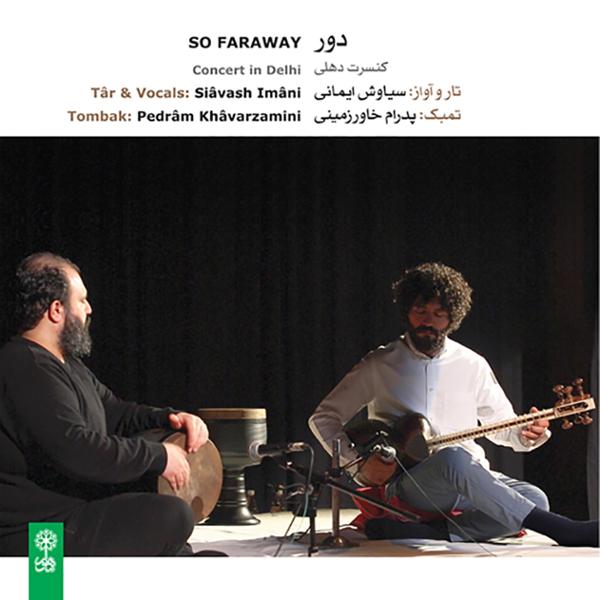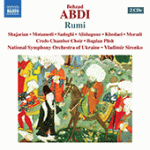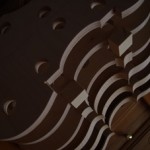
(A review of the “So Faraway” album; Tar and Tonbak duet; Siavash Imani, Pedram Khavarzmini)
Man’s passions and wishes constantly find a way to his dreams. Desires create a story in an imaginary dream with joy and taste or with prayer and supplication.
In these dreams, we sometimes lose our “self”. We see ourselves in the place of others and sometimes others in our own body.
But a dream is never a dream in itself. In the horizons of dreams, everything is as real as in the illusory reality of awakeness. Saigyo, the insane Japanese monk, said: How can I accept that a dream is a dream when I don’t accept that the truth is the truth?!
***
“So Faraway” is the idea of a dream that “Young Latfi” sees in his most loving and glowing days -his nights- :
He dreams, he no longer has only the voice and the restless and seditious excitement of singing, has been sung, perfectly! And so free that even in a moment, he shouts from the depths of his soul: “Aakh”!
He dreams that his springs of Shahnaz and Majd are boiling and roaring more than ever!
He dreams that by his side he is not just a percussionist, but a musician who, following the refined state of his every moment, is himself a cover of music. One by one, it is the rain of comets of this bright night. It is not the only voice that is audible! His creation is visible.
He dreams of what a fluid, slippery and comfortable, his sentences like a flowing stream, flow from the green fields of Segah to the desert of Humayun and fall into turmoil and floods in the Hesar stacks.
Also, in the magical world of this dream and imagination, he constantly turns into “others”. He plays like sound of rosary beads. The finger glide on the handle of Tar. His plectrum gets closer and closer… and he comes back to himself and plays with “his own” way in tremolos; that sound as if they are dying. And in the end, he becomes completely selfless. He wears clothes and clothes. He wears a suit. Shahnaz gets excited and wakes up with the last sound…
***
Imani and Khavarzemini have exhibited such a dream on an stage in Delhi. “So Faraway” is a show that tells the story of a dream. But this show itself is not a dream! It is not a dream to sit and watch us! Our delight and tears are not a dream! Is it? Maybe!
Everything and everyone’s dream is spectacular. It is worth seeing – hearing – living. I do not accept that a dream is a dream! How can I accept that reality is reality?!






